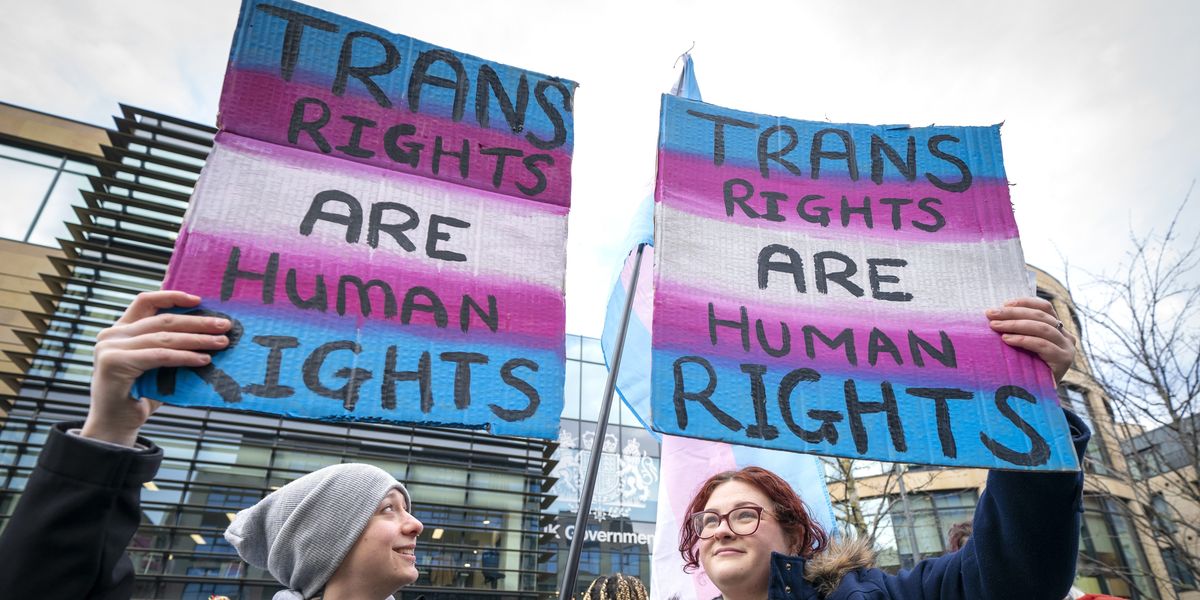The Battle for the Women & Equalities Committee: Trans Rights and Labour MPs
In the heart of the UK Parliament, a significant political contest is unfolding that touches on one of the most contentious issues of our time: transgender rights. Labour MPs Sarah Owen and Kate Osborne are vying for the position of chair of the Women & Equalities Committee, a role that carries substantial influence over policies affecting gender equality and LGBTQ+ rights. Both candidates have made clear their stance that transgender women are women, a position that has sparked debate among various factions, particularly women’s rights campaigners.
The Candidates: Sarah Owen and Kate Osborne
Sarah Owen: A Vocal Advocate for Trans Rights
Sarah Owen, the MP for Luton North, has been an outspoken advocate for transgender rights. In a tweet commemorating Transgender Awareness Week in November 2020, she stated unequivocally, “Trans rights are human rights. Trans men are men. Trans women are women.” This declaration aligns her firmly with the contemporary understanding of gender identity, which recognizes the lived experiences of transgender individuals.
Owen’s commitment to trans rights extends beyond social media. During a Commons debate in 2021, she condemned media portrayals of trans people, accusing outlets of “spinning the most vicious bile” against them. Her stance emphasizes that the fight for LGBTQ+ rights is ongoing and that the community continues to face significant challenges.
Kate Osborne: A Champion for the Marginalized
Kate Osborne, representing Jarrow and Gateshead East, shares a similar commitment to trans rights. A member of the Socialist Campaign Group, Osborne has been vocal about the need to address the vilification of trans individuals. In a recent statement, she remarked, “Yes, some women have a penis,” directly challenging the narratives often propagated by those who oppose transgender inclusion.
Osborne has also expressed concern over proposed legislation that could restrict access to puberty blockers for transgender youth, highlighting her commitment to safeguarding the rights and health of young trans individuals. Her New Year’s resolution to “block terfs [trans-exclusionary radical feminists]” underscores her determination to combat anti-trans sentiments within and outside the party.
The Political Landscape: Labour’s Approach to Trans Rights
Since Labour’s decisive victory in July, the party has navigated a complex landscape regarding trans rights. Under Sir Keir Starmer’s leadership, Labour has adopted a nuanced approach. While the party has confirmed that it will not make it a hate crime to misgender individuals—an apparent retreat from earlier positions—it has also pledged to simplify the legal process for transgender individuals seeking to change their gender. This includes removing the requirement for a panel of doctors and lawyers, a move that many advocates see as a step forward.
The contrasting views within the party reflect broader societal debates about gender identity and women’s rights. As Owen and Osborne prepare for their election to the Women & Equalities Committee, their positions will undoubtedly influence the committee’s future direction and the policies it advocates.
The Election Process: A Secret Ballot
The election for the chair of the Women & Equalities Committee will take place through a secret ballot, allowing MPs to rank candidates in order of preference. This process adds an element of intrigue to the contest, as support from influential figures can sway the outcome. Owen has garnered backing from former Chancellor Jeremy Hunt, while Osborne has received endorsements from notable figures such as former Shadow Home Secretary Diane Abbott.
The Broader Implications
The outcome of this election is not merely a matter of parliamentary procedure; it has far-reaching implications for the rights of transgender individuals in the UK. As both candidates advocate for the recognition of transgender women as women, their leadership could shape policies that promote inclusivity and protect the rights of marginalized communities.
However, the tension between women’s rights and transgender rights remains a contentious issue. Women’s rights campaigners have raised concerns about the implications of including trans women in spaces traditionally reserved for cisgender women. This ongoing debate highlights the need for dialogue and understanding among different groups advocating for equality.
Conclusion: A Pivotal Moment for Trans Rights
As Sarah Owen and Kate Osborne prepare to contest the chair of the Women & Equalities Committee, they stand at a pivotal moment in the ongoing struggle for trans rights in the UK. Their positions reflect a commitment to inclusivity and equality, but they also underscore the complexities of navigating the intersection of gender identity and women’s rights. The outcome of this election will not only determine the leadership of a key parliamentary committee but also signal the direction of Labour’s policies on one of the most pressing social issues of our time. As the political landscape continues to evolve, the voices of those advocating for trans rights will remain crucial in shaping a more equitable society for all.
